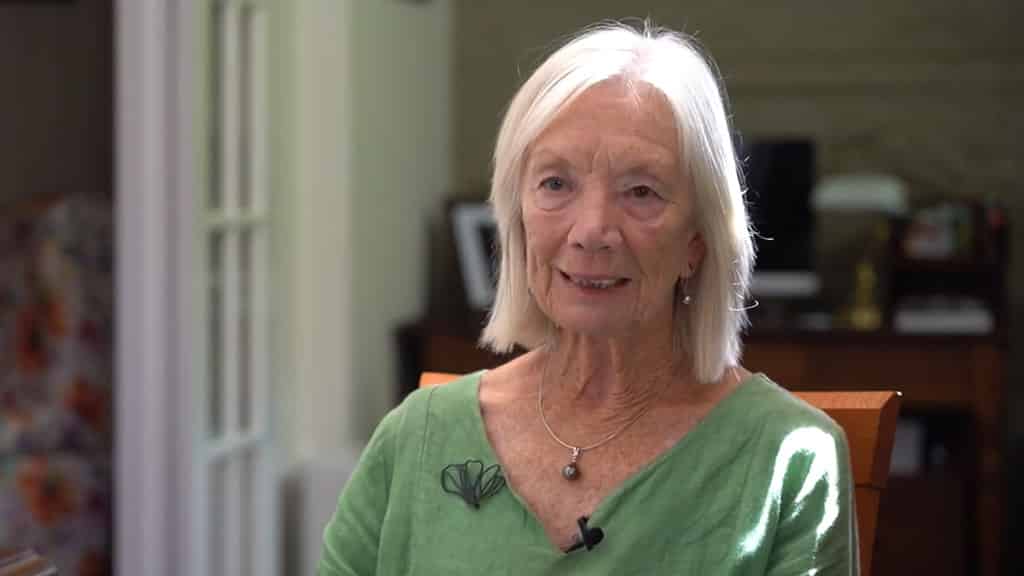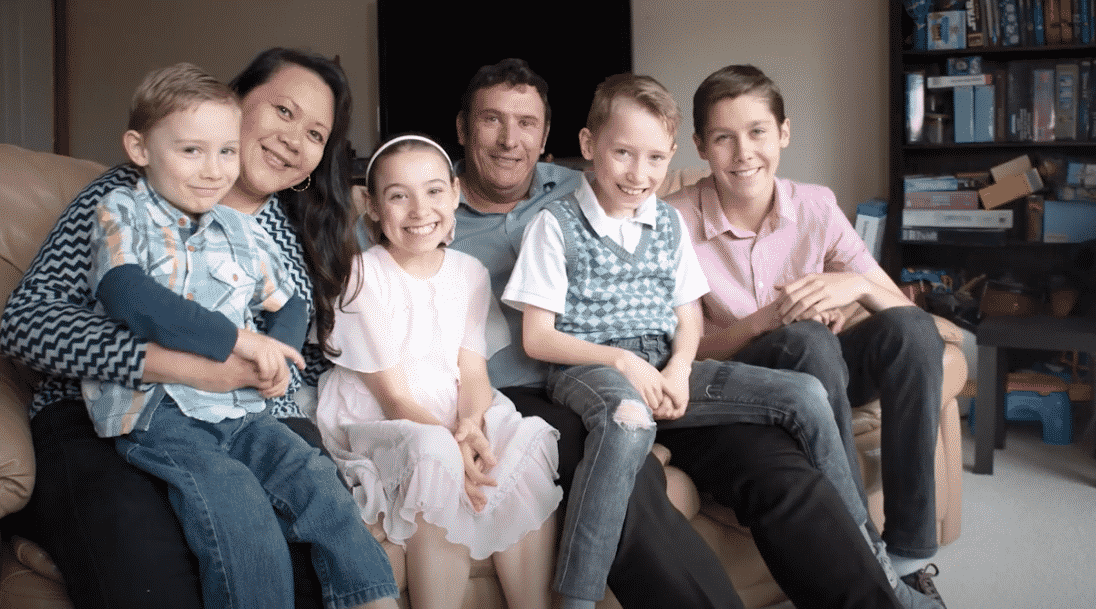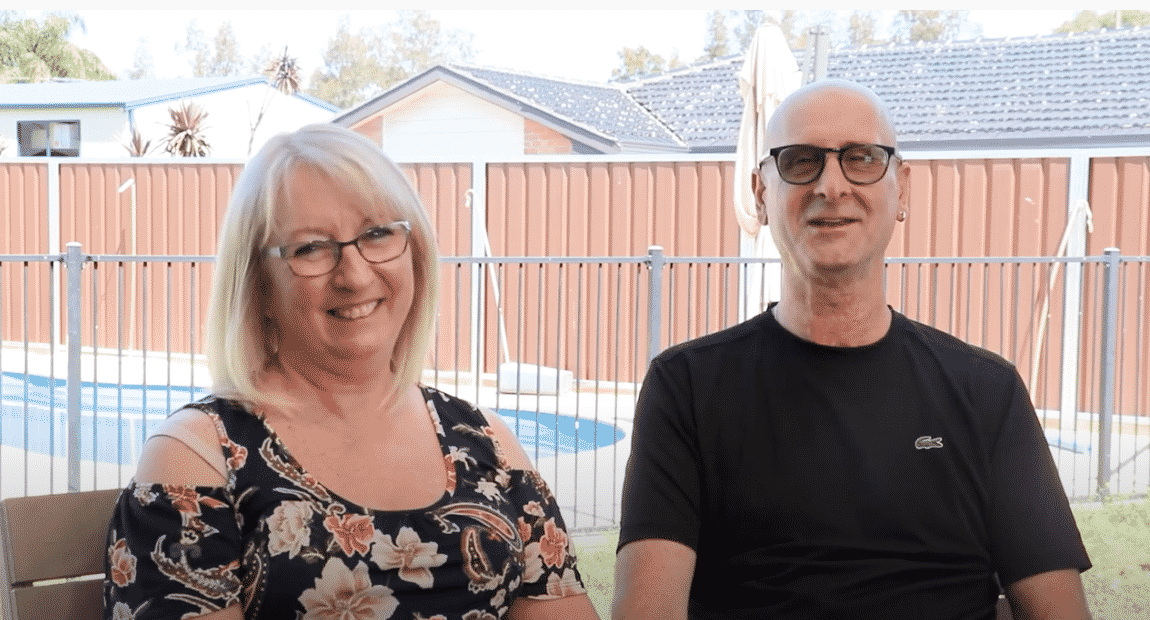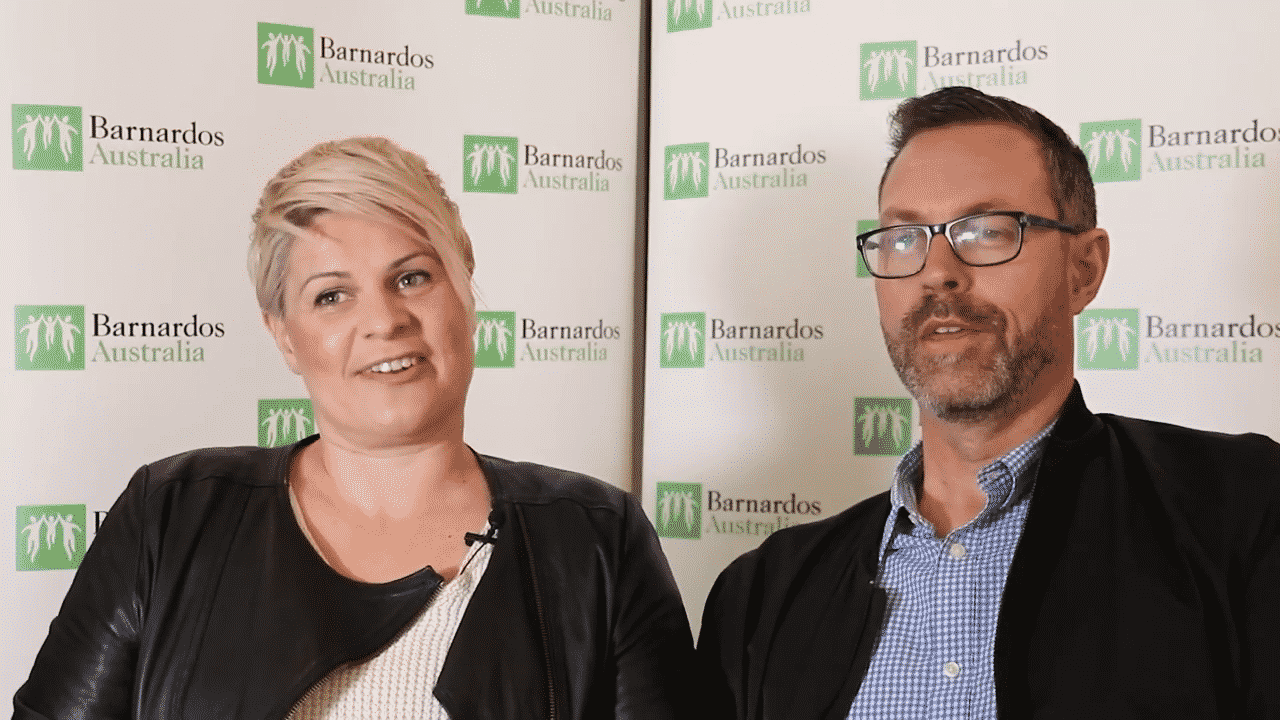
Why is open adoption best for children?
Be a part of creating brighter futures for children in Australia.
What is open adoption?
Open adoption means that when children get adopted, they will still have ongoing connection and contact with their birth families. For children whom the court has ruled unsafe to return home, open adoption can provide them safety, permanency, security and belonging for life.
100% of all domestic adoptions in Australia are considered to be open adoptions, and supporting this relationship is a legal obligation of the adoptive parents.
At Barnardos, all adoptions are open adoptions.
Why is open adoption best for children?
Having openness around their adoption means children know who they are and where they come from through family connection. This openness, knowledge, and understanding helps adopted children form a healthy sense of identity and belonging, which is essential for their emotional, intellectual, and physical development.
Open adoption gives children the best opportunity for a secure future by meeting their attachment needs and giving them the opportunity to understand their past. This is essential to their development and ongoing construction of identity as a member of an adoptive family.

Benefits of open adoption

Research proves that open adoption is the best option
Barnardos prides itself on having an evidence-informed practice through our own research, submissions to government and peak bodies and papers such as the ‘Outcomes of Open Adoption from Care’ research project, which was a collaboration between the Universities of Oxford, Loughborough UK and Barnardos Australia.

Barnardos launches groundbreaking
adoption research
Video captions
Tori (Adoptee): Having my parents be so open about my adoption from the beginning has been really, I guess, just good for me because I knew I could be honest and I knew I could ask as many questions as I wanted.
Deirdre Cheers (CEO, Barnardos Australia): Barnardos has published, in conjunction with Oxford University, groundbreaking research into the outcomes for children of open adoption from out-of-home care in Australia. This group of 210 non-aboriginal children, adopted between 1987 and 2013, shows us what open adoption can achieve.
Lynne Moggach (Report Author & Fmr Barnardos Adoptions Manager): I started working with Barnardos in January 1986 and left in 2019. For me, I think it was really being able to make a difference to children’s lives, to give them that sense of stability and permanence and a lot of children had said that they actually really felt that they had a family that they belonged to, rather than just moving through the system.
It was quite amazing going and seeing children that were young adults and being involved in those interviews over young adults who were in their 30s and 40s, who I remember when they were first placed with their family, and just seeing how their lives had evolved over that time and the adoptive parents as well.
Prof. Harriet Ward (Honourary Research Fellow, University of Oxford): If it’s a question of long-term foster care or adoption, adoption appears to offer much greater chances of stability, much better transitions to adulthood, much more support through that transition, more long-term support than foster care does.
Damian (Adoptee): I usually only really talk about my childhood as from the time I spent with my parents who adopted me because everything before that was fairly awful, like assaults and violence, and moving families and all that kind of fun stuff.
I think I was about three when I was first removed from my biological mother. She had a boyfriend who was abusive and was really not good for her or for me.
Prof. Harriet Ward (Honourary Research Fellow, University of Oxford): I’ve done a lot of research on child protection, and these children had had significantly worse experiences than many children who come into care. That’s not surprising really because these are the children who can’t go home. These are the children for whom there has been a decision that it won’t be safe for them to return to their birth families.
Damian (Adoptee): The moving around a lot affected me because I sort of felt like the only person I could trust was me because everybody around me lied to me constantly. You were always told: “This is the last time,” or “This is it, this is the real one,” with the exception of the ones where they tell you this is a short-term thing while we find you somebody, which is a different story.
It makes you very cynical and it makes you very hard-hearted, I think, because you just don’t trust people.
Prof. Harriet Ward (Honourary Research Fellow, University of Oxford): So the progress that they made I thought was quite astounding really. A number of them did exceptionally well. One of the interesting outcomes, I think, was that they tended to do well on education and on employment. And I think that that was very much to do with the way in which the adoptive parents acted as protective factors. The commitment of the adoptive parents was really very, very strong, and it was they who helped the children overcome their difficulties. And as adults, they helped the children when some of the adoptees lost their jobs, for instance, or they couldn’t pay the rent and things went wrong. They had somebody watching their back who picked them up and helped them get back on track
Lynne Moggach (Report Author & Fmr Barnardos Adoptions Manager): I think, what makes adoptive parents hang in is that they’ve made a commitment to that child. They have brought the child into their family; they have legal authority to make those decisions, a responsibility, and they’re not going to give up. You know, they say it’s hard, but they’ll hang on in there and they’ll do what they need. And that came across time and time and time again. That life might be tough, but it could have been tough with your own child: You don’t give up on your own child. So they’re not going to give up on a child because they’re adopted.
Tori (Adoptee): I guess it’s just that sense that you belong and identify with one family, and I know I didn’t have to go through several foster care homes and sort of grow attached to different people and then be taken away from them.
Marc de Rosnay (Professor of Childhood Development, University of Wollongong): Yeah, when we think about adoption and we think about permanent fostering or other options, one of the key considerations that we have to keep in mind is what it means to the young person, to the child, to the adolescent, and then to the adult later on who’s been adopted or fostered.
Insofar as our own research has shown and insofar as my reading of the literature has shown, it matters to young people whether they are adopted or not. In particular, adoption under the right conditions brings a sense of safety and security. It gives the child that foundation from which they can continue their development and grow. It doesn’t erase the past, and that must never be the wish for adoption. But what it does is it gives them a stable platform to develop and to learn, and hopefully, in an open adoption context, to learn about themselves.
Prof. Harriet Ward (Honourary Research Fellow, University of Oxford): As part of the adoption order, there was a specification for mandatory face-to-face contact with various members of the birth family and the frequency within which that would happen. And post-adoption face-to-face contact with birth family members is not mandatory, I don’t think it’s mandatory anywhere else apart from New South Wales and the Australian Capital Territory (ACT). It’s certainly not mandatory in the UK. It’s usually letterbox contact; it’s nothing like as frequent as it is in Australia, and it’s not part of the ideology in the UK yet. It’s not an expectation where in Australia it is a requirement and an expectation, and that was a huge difference. So, it was very interesting seeing what contact was like and how beneficial it was.
Damian (Adoptee): My grandmother, because she was a big part of my life, my parents (my adopted parents) made her a big part of their life. My grandmother is, was really the one constant in my life from three to, you know, when she eventually passed away. That relationship was really important and really vital to my continued emotional well-being, I think.
Prof. Harriet Ward (Honourary Research Fellow, University of Oxford): In order to move forward, I think the children had to understand what had happened to them. Otherwise, it’s not possible to accept that you can’t live with your birth parents. You have to have a reason why that can’t happen, and it’s painful understanding that you have been abused, that you have lived in a family that hasn’t been beneficial for you in the past. But once you can do that and you can connect that to your present and look back and say, “I’ve done with that, I’ve finished with that,” then you can move forward, and that’s what happened when the children were most successful.
Tori (Adoptee): I’ve got good contact with my birth grandma or nan, and she’s given me this book, and it kind of explains all the things that have happened as well. And I guess I’ve been able to talk to my parents about it, so I sort of I know what happens and I know about like the neglect and like all the kind of darker reasons why we have to leave.
Lynne Moggach (Report Author & Fmr Barnardos Adoptions Manager): I think internationally, people are looking at what happens in Australia; they’re looking at what happens in New South Wales because people are seeing that open adoption is a really positive thing for kids rather than having those closed adoptions that we had in the past, in terms of particularly identity, in terms of knowing who you are, where you come from.
So, I think in that sense, this is where we might be heading. I think there are implications for early decision making because we’ve certainly found out that children bounced around the systems before decisions were made about long-term plans.
Marc de Rosnay (Professor of Childhood Development, University of Wollongong): Because of the nature of this area, it’s very difficult to do good research and to follow children up, to maintain relationships with them over decades so that we can see how the actions that we took have affected them later on. This is a very rare opportunity, and we should be building more of this kind of capacity into our systems. And I think, you know, departments, government departments are trying to do that.
But in the end, getting this sort of information about children over this sort of time period is a very rare and special opportunity.
Deirdre Cheers (CEO, Barnardos Australia): Children in out-of-home care who have been through child care and protection systems are the most vulnerable of children. In order to plan well for them, particularly if they are very young, we need to consider permanency for life, and open adoption provides true legal permanency with the ability to maintain relationships. All over Australia, governments are looking closely at this and internationally as well. We know that this research will provide a very strong basis for consideration of permanency for children.
Damian (Adoptee): The sheer persistence and resilience of those two, I can never praise enough. They’re incredible, they really are, and I couldn’t have asked for better parents. I really couldn’t. So as much as they say the success is mine, it never would have happened without them.
Open Adoption FAQs
How often will a child have contact with their birth family?
The frequency of contact is decided by the court, dependent on the age of the child and their relationship with their birth family. Contact usually includes face-to-face visits, letters, telephone and video calls, emails, photos, and cards.
How much does open adoption cost?
There are no legal expenses, assessment expenses, or administration costs for carers wanting to become an adoptive parent. Our in-house legal team manages the adoption process from start to finish.
Is open adoption suitable for every child in foster care?
No, every child’s family circumstances are different and so not all children in foster care are suitable for adoption. We also acknowledge that adoption is culturally inappropriate for Aboriginal and Torres Strait Islander children.

Open adoption stories

Meet Matt and Bernie

Meet Sharon and Chris

Meet Ronnie and Paul
Enquire about open adoption
We'll make sure you get all the information you need.


